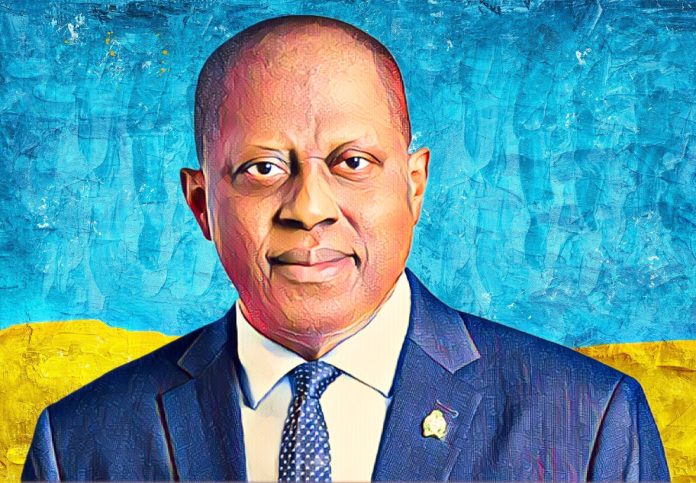Key Points
- CBN slashes MPR to 27 percent, surprising financial market analysts.
- Inflation pressure may be easing as consumer prices show slowdown.
- Analysts predict more monetary easing if inflation continues to drop.
The Central Bank of Nigeria (CBN) has reduced its benchmark interest rate to 27%, signaling a significant shift in monetary policy aimed at addressing Nigeria’s persistent inflation problems. This decision, made public on Monday by CBN Governor Godwin Emefiele, comes after months of rising prices for food, fuel, and other necessities.
The central bank wants the rate cut to boost economic activity, make it easier for people to borrow money, and eventually bring down inflation, which has made it hard for many Nigerians to buy things.
The CBN is changing its policy as part of its ongoing efforts to find a balance between growth and price stability.
The decision is especially interesting because the Nigerian economy is still recovering from the effects of COVID-19, oil price changes, and the Russian invasion of Ukraine, which caused problems with supply chains all over the world. Because of these things, inflationary pressures have gotten worse, and Nigeria’s inflation rate was over 22% in August 2023.
The Cut in Rates: A Step Towards Stabilising the Economy
The key interest rate has been cut by 3 percentage points from 30% as part of a larger plan to help the economy in the face of rising pressures. Governor Emefiele said that the move was meant to “promote investment and restore the value of the Naira,” which is Nigeria’s currency and has lost a lot of value.
He also said that the CBN wants to help important sectors like agriculture, manufacturing, and services grow while keeping inflation stable.
Emefiele said in a statement, “This rate cut is a vital response to inflationary dynamics,” and he added that the central bank would keep a close eye on the economy. The new rate will affect the CBN’s Monetary Policy Rate (MPR), which affects the cost of borrowing and, in the end, the prices of goods and services in Nigeria.
Economists aren’t sure if it will have an immediate effect on inflation
Even though the central bank is hopeful, a lot of economists and market analysts have said they are worried about how well the rate cut will work. Many people don’t think that the move will lead to a big drop in inflation in the short term, even though it is expected to make things more liquid and give businesses some breathing room.
The price of food, especially grains, vegetables, and protein, keeps going up quickly. Also, getting rid of the fuel subsidy in the middle of 2023 made transport costs go up, which made the cost of living even higher.
According to a report by Vanguard news, Abiola Sanni, chief economist at the Lagos-based financial consulting firm Sani & Associates, said, “While the reduction may boost liquidity, it is unlikely to have a major effect on inflation right away.” “The real problem is fixing the economy’s structural problems, like high energy costs, food insecurity, and problems with the supply chain.”
CBN Is Under Pressure to Make More Changes to the Economy
The CBN’s decision comes amid rising public and political pressure for the government to take bolder steps to tackle inflation. Nigerians have been dealing with both high inflation and slow economic growth. Many people are calling for changes to fiscal policy, energy prices, and farming. Experts say that the rate cut, which is seen as a good thing, may not be enough to fully stabilise the economy.
Dr. Ngozi Okonjo-Iweala, Nigeria’s former finance minister and current head of the World Trade Organisation, said, “It’s a good step, but a temporary one.” “To deal with the main problems of food insecurity and fluctuating fuel prices, we need to make structural changes to the economy.”



